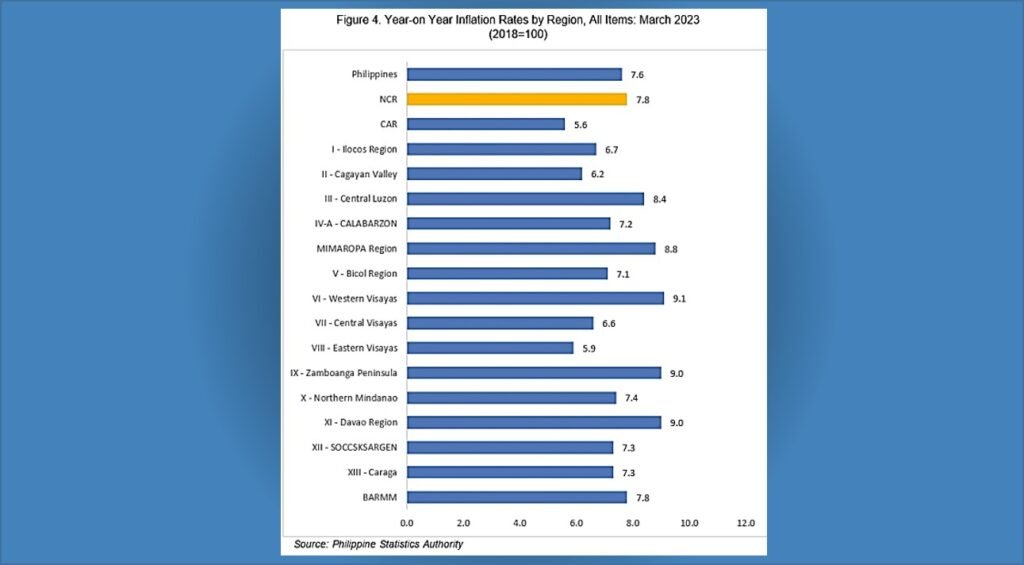- CHERYL G. CRUZ
The inflation rate for all income households in the highly-urbanized Bacolod City decreased to 8.7 percent in March, from 11.2 percent in February 2023, Luis Gonzales, chief statistical specialist of the Philippine Statistics Authority-Negros Occidental, said.
Gonzales added that slower inflation was also logged in the province, from 12.4 percent in February to 10.8 percent last month.

In Negros Occidental, the PSA attributed the slower inflation rate to slight decreases in the prices of commodities, like food and non-alcoholic beverages, alcoholic beverages and tobacco, housing/water/electricity/gas and other fuels, and transport.
Bacolod City also showed a decline, brought by slight decreases in food and non-alcoholic beverages, housing/water/electricity/gas and other fuels, and transport, Gonzales said.
Food inflation in Negros Occidental’s moderate monthly reduction in the seasonally adjusted consumer price index (CPI) for March resulted in an 11.0-percent inflation from 12.2 percent in February, the PSA said in a special release recently, adding that a similar scenario was noted in Bacolod, with a decline from 10.2 percent to 8.5 percent.
Non-food inflation in the province also posted a slower rate at an average of 10.5 percent, from 12.7 percent; and 8.5 percent from 11.6 percent in Bacolod, the PSA said.
Across all regions, Western Visayas remained with the highest inflation rate at 9.1 percent, the PSA said, although its inflation for February was at 10.8 percent.
Headline inflation rate for the Philippines slowed down to 7.6 percent in March 2023 from 8.6 percent the month prior.
The downtrend was due to the deceleration of food and transportation costs, the National Economic and Development Authority earlier said as it assured Filipinos that the government is committed to continue addressing the root causes of high food prices.
While inflation is beginning to slow down, it remains the most pressing issue that the government must monitor and urgently address, NEDA Secretary Arsenio Balisacan said in a statement, adding that “protecting the purchasing power of Filipinos, especially the most vulnerable sectors of the economy, is one of the top priorities of the administration.”
The purchasing power of the peso (PPP) remains at 0.85, the PSA said. “This means that a peso in 2018 was worth 85 centavos in March 2023. The PPP in March 2022 was higher at 0.91.”/CGC




